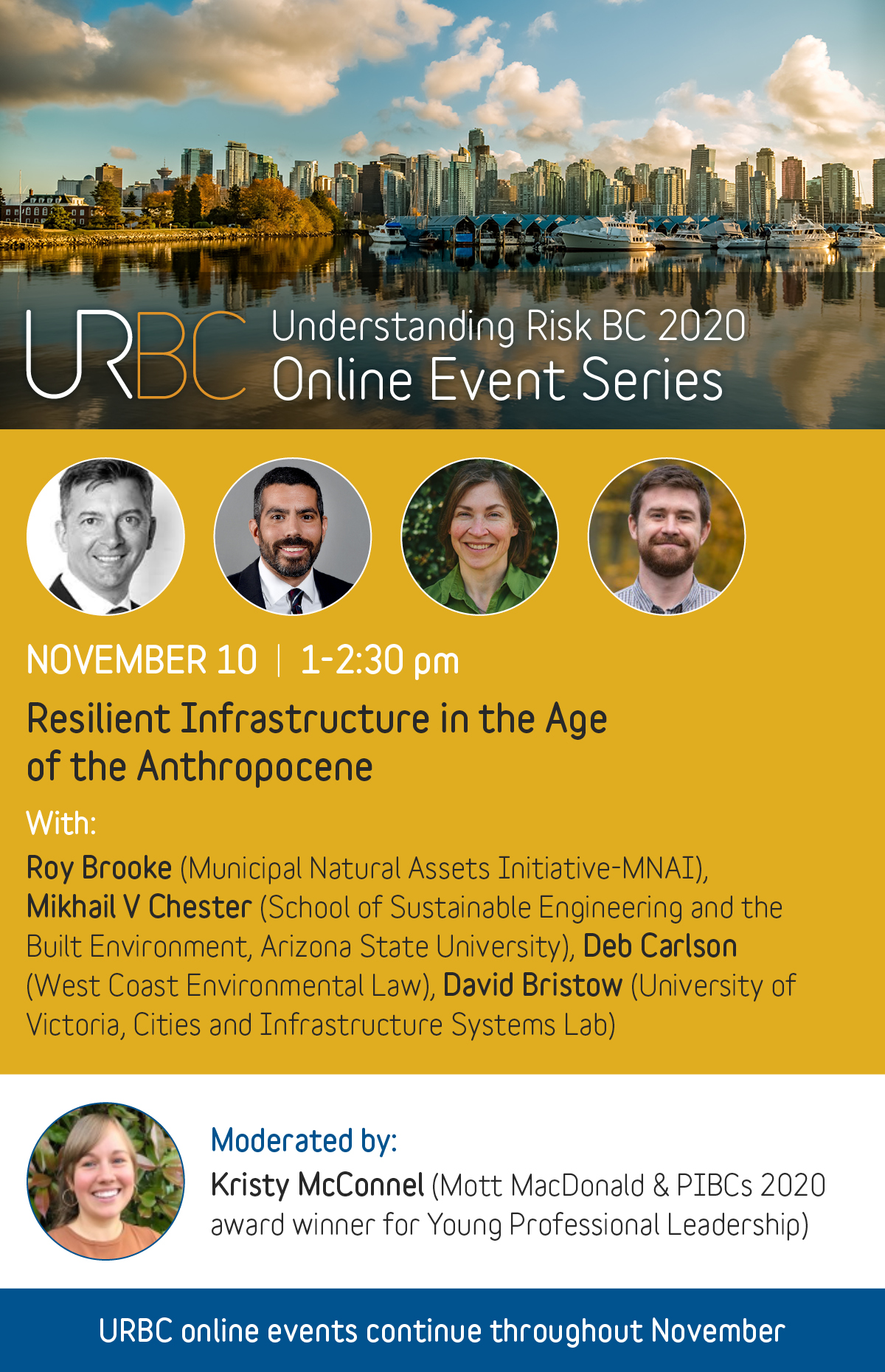
Hear from a panel of local, national and US-based practitioners on how they are thinking about - and implementing - financial approaches that accelerate much needed investments in infrastructure.
This session will look at infrastructure through the lens of the multiple challenges and opportunities we currently face in an era of unprecedented change: from funding and asset management, governance of centralized grids, multihazard considerations in the Lower Mainland (flood and seismic risk reduction/resilience) and the collaboration and innovation required to foster resilient infrastructure through approaches such as decentralization and shoring up blue-green assets.
This session should appeal to anyone who has an interest in building resilience in Southwest BC: engineers, architects, planners, developers, builders, code officials, financiers, insurers, asset managers, critical infrastructure operators, etc. Those with interest in local economic development and building the green/restoration economy would also benefit from attending and contributing to this session.
Learn more and register here.
Discussion questions:
- How should we build, design, manage and govern infrastructure in the age of the anthropocene?
- What are the barriers and opportunities in financing natural assets like blue green infrastructure?
- Are living dikes inherently more ‘resilient’?
- How can we change the incentives for owners and managers of CI to assess their risks and interdependencies such that they (and we) are managing systemic risks more effectively?
Contributors
Roy Brooke (Municipal Natural Assets Initiative-MNAI)
Mikhail V Chester (School of Sustainable Engineering and the Built Environment, Arizona State University)
Deb Carlson (West Coast Environmental Law)
David Bristow (University of Victoria, Cities and Infrastructure Systems Lab)
Moderated by Kristy McConnel (Mott MacDonald & PIBCs 2020 award winner for Young Professional Leadership)